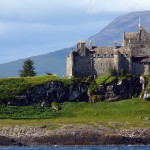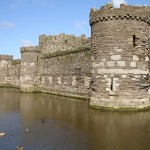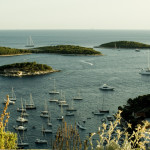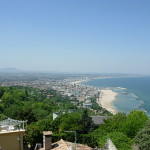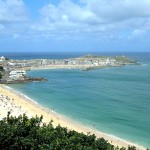The Island of Cyprus and Its Dramatic History
Cyprus has a long and tumultuous history. As a small island surrounded by the rapidly developing ancient civilizations of the Mediterranean, Cyprus was invaded many times: first by the Assyrians, who ruled for half a century following their victory over the islanders in 709 BCE, and later by the Egyptians and Persians. By the early 20th century, Cyprus was a British protectorate and Crown colony. The diverse range of influences on this island nation has led to Cyprus having a rich and multi-faceted culture, as well as many fascinating historical sites for visitors to enjoy.
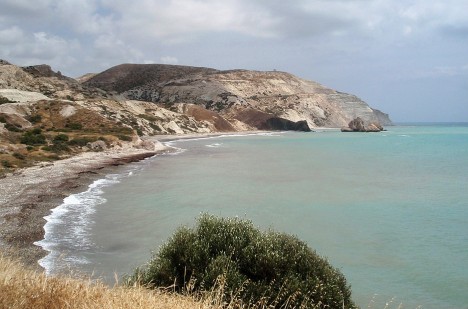
Paphos Mediterranean Coast / Anton S.
Ancient History of Cyprus
Humans have lived on Cyprus since the stone age, keeping animals such as cows, goats, and pigs for their milk and meat. The modern city of Lanarca stands on the site of an ancient bronze age city, Kition. Many of Kition’s treasures, including giant pithoi jars and beautifully decorated pottery, are preserved in the Lanarca District Archaelogical Museum. An ancient text describing the Assyrians’ rule over the Cypriots, who were forced to pay steep taxes to their conquerors, was found in this region in 1845. After the Assyrians left in 669 BCE, Cyprus enjoyed just one century of independence before being taken over by first the Egyptians and then the Persians. The Greek king Alexander the Great liberated the island from Persian rule in 325 BCE.
Cyprus and the Greek and Roman Empires
Cypriot culture flourished during the Hellenistic period of Greek rule. A temple to the Greek goddess of love and fertility, Aphrodite, was built just outside the city of Paphos on the south-west coast of the island. This sacred site still attracts many visitors every year, who come to learn about Greek mythology and browse through ancient artifacts in the nearby Palaipafos Museum. In 58 BCE, Cyprus changed hands once again to become part of the Roman Empire. During its time under Roman rule, Christianity became widespread in Cyprus, as evidenced by the large number of churches on the island. The painted churches of Troodos are fantastic examples of the architecture of the Byzantine period, which followed the break-up of the Roman empire.
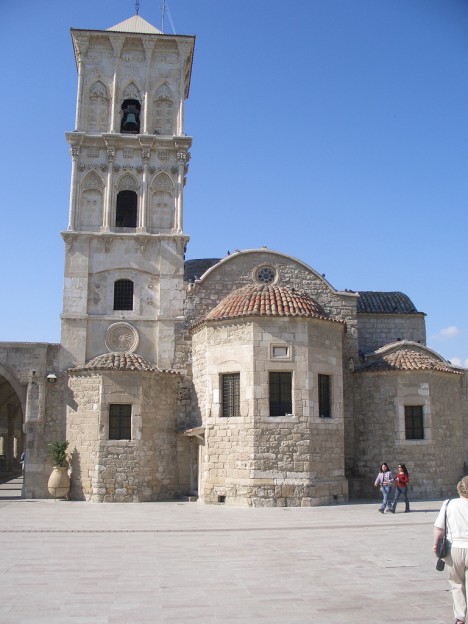
St Lazarus Church in Larnaca / Martin Belam
Cyprus as a British Protectorate
Britain’s first interaction with Cyprus occurred in 1191, when Richard the Lion Heart landed at Limassol during a storm. After conquering the island, Richard held his wedding to Queen Berengaria of Navarre in Limassol castle. This is the only British royal wedding to have taken place outside of England. Cyprus returned to British control in 1878. Under the protection of the British empire, peace and prosperity reigned in Cyprus – until some groups of Cypriots began demanding independence for their nation, which was finally granted in 1960.
A Divided Nation
A conflict with invading Turkish forces in 1974 resulted in a still-disputed nation in the northern part of the island. Visitors to the capital city of Nicosia can see the border, known as the Green Line, that separates the self-declared Turkish Republic of Northern Cyprus from the rest of the island. Nicosia is a fantastic place to visit to experience the island’s long history, since many of the cultures that have ruled Cyprus are represented here. Visitors wandering through old Nicosia will see Ottoman mosques, Venetian city walls, and Roman architecture. A trip to the Byzantine Museum is a must for anyone interested in learning about the island’s culture and religion during this period.
Article brought to you by medwelcome
View The Island of Cyprus and It’s Dramatic History in a larger map
Category: Cyprus






